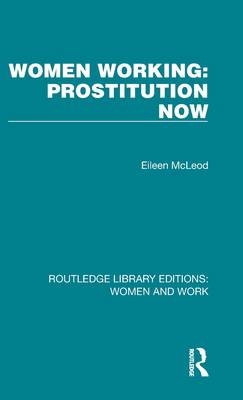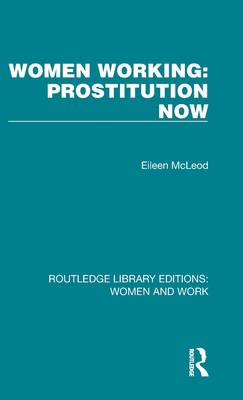
- Retrait gratuit dans votre magasin Club
- 7.000.000 titres dans notre catalogue
- Payer en toute sécurité
- Toujours un magasin près de chez vous
- Retrait gratuit dans votre magasin Club
- 7.000.0000 titres dans notre catalogue
- Payer en toute sécurité
- Toujours un magasin près de chez vous
Description
Women who work as prostitutes are struggling against a disadvantaged position in society. The relative poverty in which many women still live in is seen as the cause for prostitution, in that sex is their most saleable commodity and can bring them substantial financial rewards.
Originally published in 1982 and drawing on her involvement with PROS (Programme for Reform of the Law on Soliciting), one of the Street Prostitutes' Campaigns in Britain, and on interviews with prostitutes and their clients, the author examines how the financial benefits are offset by the attitudes prostitutes encounter from men. It is shown that while, in some ways, the role of client reflects men's advantageous social position, male clients are often trying to compensate for failure in their marriage, or an inability to conform to the accepted masculine role. What the clients want and the conditions in which prostitutes work are discussed in separate chapters.
Meanwhile, the Law, the media and public opinion unite to protect the public face of morality and to condemn prostitutes as a corrupting influence in society. This study concludes by showing how prostitutes' campaigns are struggling with these issues and relates this to the feminist efforts to improve the conditions in which women exist and work.
Spécifications
Parties prenantes
- Auteur(s) :
- Editeur:
Contenu
- Nombre de pages :
- 178
- Langue:
- Anglais
- Collection :
Caractéristiques
- EAN:
- 9781032279367
- Date de parution :
- 24-08-22
- Format:
- Livre relié
- Format numérique:
- Genaaid
- Dimensions :
- 140 mm x 216 mm
- Poids :
- 371 g







